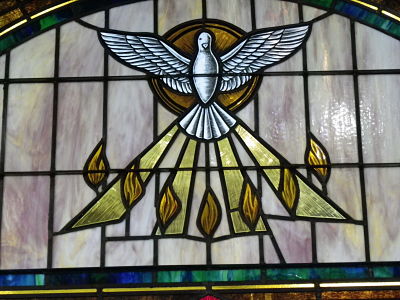Annulment

This is the meaning of an annulment, or to speak more correctly, a declaration of nullity. A decree of nullity is a declaration that despite outward appearances and their good faith, a couple has not entered into a union which has all of the content necessary for marriage, and thus each of them remains free to get married, unless a prohibition is attached to the sentence or decree of nullity.
Thus a declaration of nullity is essentially different from a divorce. A divorce states that two people, who had been validly married, are married no longer. A declaration of nullity, on the other hand, states that because something which is necessary and indispensable for a valid marriage was missing at the time two people exchanged consent, a valid marriage has not come into existence. It is thus clear that an annulment is not a divorce, “Catholic” or otherwise.
The idea that two people can go through a wedding ceremony and still not be married is not a new one. In the Christian tradition, we can find the roots of the declaration of nullity in the New Testament. Christ says to the Samaritan woman at Jacob’s well: “You are right to say you have no husband; for you have had five husbands, and he whom you now have is not your husband” (Jn 4:17-18). St. Paul condemns the Corinthians for allowing a man to enter into a union with his father’s wife (cf. 1 Cor 5:1-8). The practice of declaring certain unions invalid has continued ever since.
Every legal system has some procedure for declaring marriages invalid. Civil courts do so only rarely, principally because divorce is much simpler and cheaper to obtain than a decree that a marriage is null and void.
An annulment never affects the legitimacy of the children born of the union (this is so according to both civil law and canon law); an annulment will not claim to affect either the distribution of property nor the award of the custody of the children.
Nevertheless, the union that existed between the parties created very real moral and legal obligations toward the other party and any children born. There would be serious moral guilt if these obligations were ignored. If a person seeks to remarry after a decree of nullity, the Church insists on the fulfillment of obvious moral and legal obligations, and will not allow a new marriage to take place in the Church unless those obligations were being fulfilled up to that time. If there were doubts concerning the future, the Church would insist on a solemn written promise in this regard from both parties to the new marriage. This element has to enter in because otherwise the Church could become a party to the immoral ignoring of serious obligations by allowing a new wedding to be celebrated in the Church while the obligations to the former union were being ignored.
As an aside, it is important to note that those Catholics who remarry after divorce, without obtaining a declaration of nullity, are not automatically excommunicated. While they are living in a state that is in contradiction to the teaching of the Church on marriage and are thus in manifest grave sin, they do not incur the penal sanction of excommunication for this reason. This was the case in the United States until 1977. The penalty of excommunication was imposed exclusively within the United States by an ecclesiastical council in 1884. However, since the revision of the procedures for annulments and the promulgation of the two new codes of canon law, no one is any longer subject to such a penalty. Because a person divorced and remarried without a declaration of nullity for the prior union cannot be considered to be living in a state of life that mirrors the union between Christ and the Church which is signified by the Eucharist, such a person is not permitted to receive Holy Communion until their marital status is resolved. This is, however, not the result of the public imposition or declaration of an ecclesiastical penalty, but rather the result and consequence of the person’s public circumstances and behavior.
For more information, see the Diocese of Charlotte Annulment information at:
http://charlottediocese.net/ministries-a-departments/tribunal/5/67
Holy Spirit Parish Annulment Procedures:
In order to obtain an annulment please contact:
Deacon Webster James,
This email address is being protected from spambots. You need JavaScript enabled to view it.
You will need to provide a copy of your baptismal certificate, marriage license and divorce decree.
Please note that if you are contemplating a marriage and you have been previously married in the Catholic Church, a Protestant Church or by Civil Union, you must obtain an annulment. The Catholic Church cannot proceed with any marriage preparation without the previous marriage bond being annulled.
Please allow ample time for the annulment procedures:
30 to 60 days to submit application
30 days for respondent to reply
30 days for witnesses to reply
30 days for all testimonies to be briefed by advocates
30 - 60 days for Diocese to approve or disapprove
